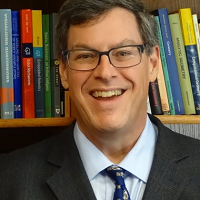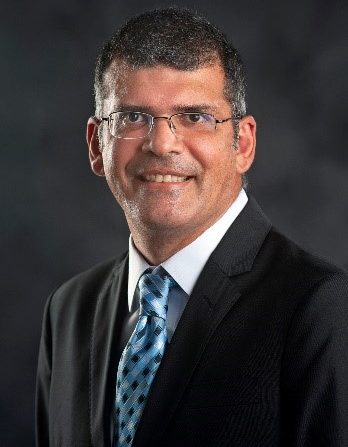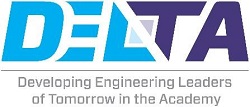Launch your leadership role and guide your department with confidence.

The DELTA New Department Leaders Institute is an intermediate-level, instructor-led course designed to provide new department chairs with the insights and strategies needed to confidently step into and succeed in their leadership role. By the end of this program, participants will have the knowledge and tools to positively launch and navigate their role as department chairs.
This course is intended for new chairs or heads of departments who show promise of significant impact as a department leader. Eligibility is limited to department leaders who have completed less than three years of service prior to participation in the Institute.
This course is delivered in three four-hour sessions, totaling 12 hours of instruction. Participants will engage with facilitators and peers through interactive breakout activities and guided discussions.
How You Will Benefit
• You will gain the knowledge and tools needed to lead a successful, thriving department.
• You will become a change agent for the engineering professoriate and the profession of engineering.
• You will form an enduring network of engineering faculty leaders.
Learning Outcomes
Graduates of the DELTA New Department Leaders Institute will be able to:
- Create a vision and develop a strategic planning process that will be collaboratively implemented.
- Organize academic programs and facilitate a culture of student success and continuous improvement.
- Form an effective and supportive network of valuable professional relationships internal and external to your institution.
- Practice strategies for leading, evaluating, and mentoring faculty and staff and demonstrating effective communication and conflict resolution skills.
- Examine methods for successful departmental resource management and stewardship.
- Identify techniques to advance diversity, equity, and inclusion during recruitment and hiring processes and effect positive change at the classroom and department level.
Course Topics
Session I
• Core Functions of the Department Chair
• Leadership Approaches
• Continuous Improvement and Assessment
• Strategic Planning
Session II
• Faculty Assignment, Evaluation, and Mentorship
• Conflict Resolution
• Effective Communication
• Budget Stewardship
Session III
• Inclusive Excellence
• Recruiting and Hiring Diverse Faculty
• Departmental Climate
• Inclusive Classrooms
• Relationship-Building
About the DELTA (∆) Institutes
The DELTA (∆) Institutes are designed to develop engineering and engineering technology faculty and administrators as change agents for 1) the ongoing transformation of higher education and 2) the transformation in engineering education, research, and community engagement necessary to address the NAE Grand Challenges and the UN Sustainable Development Goals.
Through the inclusion of leading-edge knowledge and best practices in professional development for faculty and administrators, the DELTA (∆) Institutes will improve efficiency and effectiveness for each participant and thus also do so broadly across the universities they serve.
Facilitator
 Pierre Larochelle serves as Department Head and Professor of Mechanical Engineering at the South Dakota School of Mines & Technology. Previously he served as an Associate Dean and Professor of Mechanical Engineering at the Florida Institute of Technology. His research focuses on the design of complex robotic mechanical systems and enabling creativity and innovation in design. He is the founding director of the RObotics and Computational Kinematics INnovation (ROCKIN) Laboratory, has over 100 publications, holds three US patents, and serves as a consultant on robotics, automation, machine design, creativity & innovation, and computer-aided design. In 2012 at NASA’s request he created a 3-day short course on Creativity & Innovation. This course has been very well received and he has taught it exclusively more than 30 times at NASA’s various centers and laboratories across the nation to more than 600 of NASA scientists and engineers. He currently serves as the Chair of the U.S. Committee on the Theory of Mechanisms & Machine Science and represents the U.S. in the International Federation for the Promotion of Mechanism & Machine Science (IFToMM) (2016-22). He serves as a founding Associate Editor for the ASME Journal of Autonomous Vehicles and Systems (2020-23). Moreover, he serves on the on the Executive Committees of ASME’s Department Heads Committee and of ABET’s Engineering Accreditation Commission (EAC). He serves as an ABET Accreditation Visit Team Chair. He has served as Chair of the ASME Design Engineering Division (2018-2019), the ASME Mechanisms & Robotics Committee (2010-2014), and as an Associate Editor for the ASME Journal of Mechanisms & Robotics (2013-19), the ASME Journal of Mechanical Design (2005-11), and for Mechanics Based Design of Structures & Machines (2006-13). He is a Fellow of the American Society of Mechanical Engineers (ASME), a Senior Member of IEEE, and a member of Tau Beta Pi, Pi Tau Sigma, ASEE, and the Order of the Engineers.
Pierre Larochelle serves as Department Head and Professor of Mechanical Engineering at the South Dakota School of Mines & Technology. Previously he served as an Associate Dean and Professor of Mechanical Engineering at the Florida Institute of Technology. His research focuses on the design of complex robotic mechanical systems and enabling creativity and innovation in design. He is the founding director of the RObotics and Computational Kinematics INnovation (ROCKIN) Laboratory, has over 100 publications, holds three US patents, and serves as a consultant on robotics, automation, machine design, creativity & innovation, and computer-aided design. In 2012 at NASA’s request he created a 3-day short course on Creativity & Innovation. This course has been very well received and he has taught it exclusively more than 30 times at NASA’s various centers and laboratories across the nation to more than 600 of NASA scientists and engineers. He currently serves as the Chair of the U.S. Committee on the Theory of Mechanisms & Machine Science and represents the U.S. in the International Federation for the Promotion of Mechanism & Machine Science (IFToMM) (2016-22). He serves as a founding Associate Editor for the ASME Journal of Autonomous Vehicles and Systems (2020-23). Moreover, he serves on the on the Executive Committees of ASME’s Department Heads Committee and of ABET’s Engineering Accreditation Commission (EAC). He serves as an ABET Accreditation Visit Team Chair. He has served as Chair of the ASME Design Engineering Division (2018-2019), the ASME Mechanisms & Robotics Committee (2010-2014), and as an Associate Editor for the ASME Journal of Mechanisms & Robotics (2013-19), the ASME Journal of Mechanical Design (2005-11), and for Mechanics Based Design of Structures & Machines (2006-13). He is a Fellow of the American Society of Mechanical Engineers (ASME), a Senior Member of IEEE, and a member of Tau Beta Pi, Pi Tau Sigma, ASEE, and the Order of the Engineers.
Requirements and Resources
Pre-Work: You will complete a pre-program assignment related to the program’s learning outcomes.
Inter-session Work: You will complete homework assignments related to the program’s learning outcomes.
Supplemental Resources: You will be provided with (1) a participant guide, (2) presentation slides, and (3) workshop recordings.
Attendance and Completion
Full and active participation will enhance the learning experience for all participants. At the end of the program, you will receive a certificate of completion via email. Professional development hours (PDH) will be provided upon request.
Terms and Policies
• Cancellation Policy
• Recording and Privacy Policy
If you have questions, please contact learning@asee.org.
Testimonials
 “The best part of the program was the case-study driven and discussion-oriented sessions… The program gave me several ideas on how to improve departmental operations by promoting shared-governance, thinking bottom-up, and to be an effective communicator. From the program, I took home several lessons and actions points, one of which was to develop a strategic plan for the Department, on which we are actively working on.”
“The best part of the program was the case-study driven and discussion-oriented sessions… The program gave me several ideas on how to improve departmental operations by promoting shared-governance, thinking bottom-up, and to be an effective communicator. From the program, I took home several lessons and actions points, one of which was to develop a strategic plan for the Department, on which we are actively working on.”
Samee U. Khan
James W. Bagley Chair Professor and Head, Department of Electrical and Computer Engineering
Mississippi State University


